Mailchimp vs Constant Contact is a common comparison for anyone looking to start or improve their email marketing strategy. These two platforms are among the most popular email marketing tools available today—but they serve different types of users and offer distinct features.
Whether you’re a small business owner, marketer, or nonprofit, choosing the right email marketing software can have a big impact on your results. In this in-depth guide, we’ll compare Mailchimp and Constant Contact across key categories like ease of use, automation, pricing, support, and more—so you can make the best choice for your goals and budget.
Whether you’re a small business owner, marketer, or nonprofit, choosing the right email marketing software can have a big impact on your results. In this in-depth guide, we’ll compare Mailchimp and Constant Contact across key categories like ease of use, automation, pricing, support, and more—so you can make the best choice for your goals and budget.
Table of Contents
Ease of Use
When comparing Mailchimp vs Constant Contact, ease of use is one of the most important factors for beginners and small businesses.
Mailchimp offers a modern, intuitive dashboard with guided steps that help users get started quickly. From creating an email campaign to managing contacts, the process is streamlined and user-friendly. The drag-and-drop editor is smooth, and helpful tooltips are available throughout the platform. However, some users may find the layout slightly overwhelming due to the variety of advanced features packed into the interface.
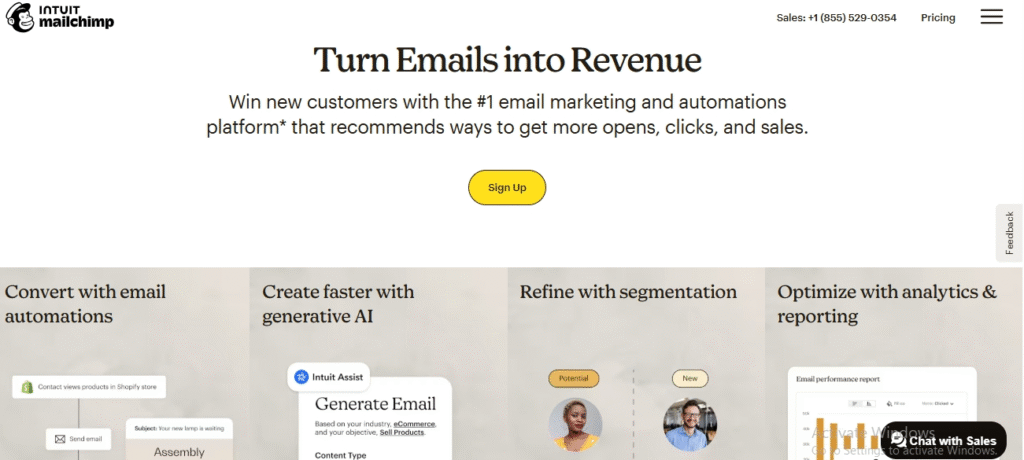
Constant Contact, on the other hand, is known for its simplicity. It’s designed with beginners in mind, offering a clean layout and a very gentle learning curve. Tasks like creating a newsletter, uploading a contact list, or launching a campaign can be done in just a few clicks. It doesn’t offer as many features as Mailchimp, but for users who prefer a straightforward experience, it’s a strong contender.
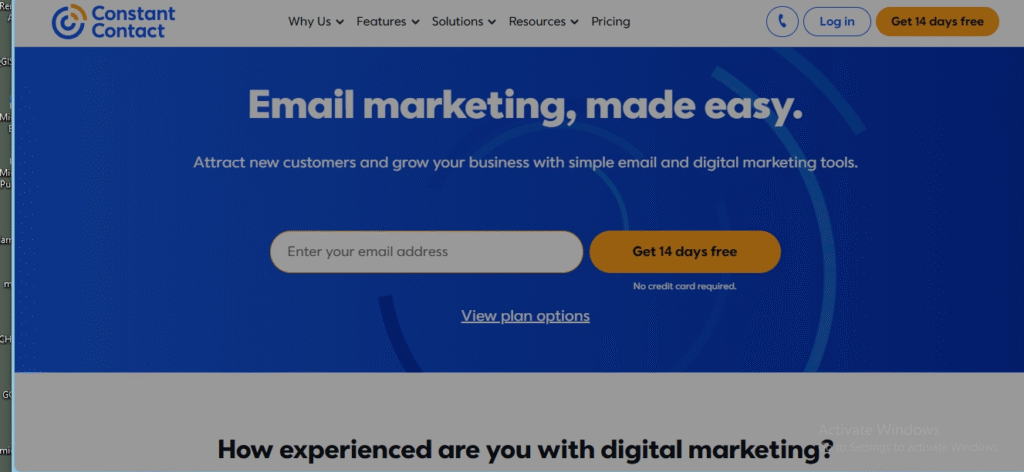
In short, if you’re looking for more control and advanced tools, Mailchimp is a great choice. If you prefer a simple and beginner-friendly platform, Constant Contact may be the better option.
Email Templates & Design Tools
A key factor in the Mailchimp vs Constant Contact debate is how each platform handles email design and templates.
Mailchimp offers a wide range of modern, professional-looking email templates. Users can choose from pre-designed layouts for different goals—such as announcements, product showcases, or newsletters. The drag-and-drop editor is flexible, allowing you to customize layouts, add content blocks, adjust spacing, and match brand colors. Mailchimp also includes a “Creative Assistant” that can generate branded templates based on your website or social media.

Constant Contact provides fewer templates than Mailchimp, but its templates are clean, responsive, and easy to customize. Its drag-and-drop builder is very beginner-friendly, making it ideal for users who want to quickly create polished emails without getting overwhelmed by design options. While it may not offer the same creative depth as Mailchimp, it makes up for it in simplicity and speed.
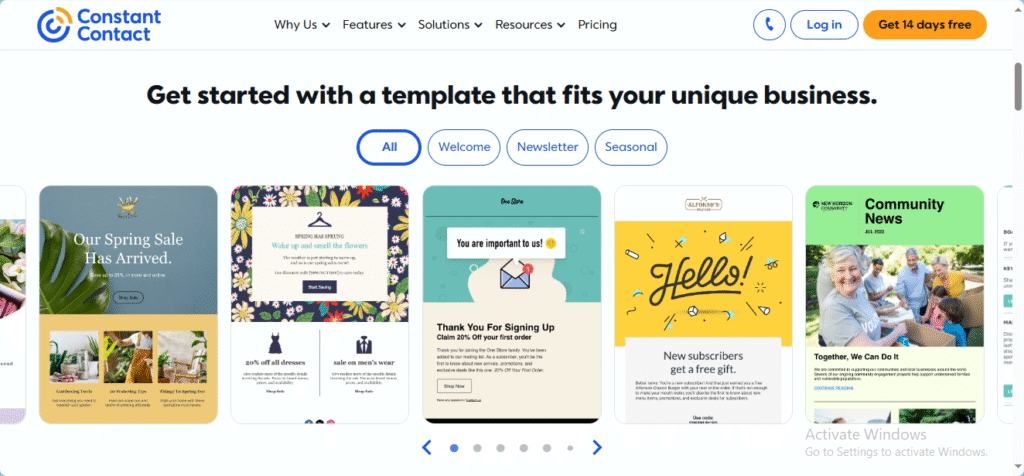
In summary, Mailchimp is better suited for users who want creative freedom and branding tools, while Constant Contact is perfect for those who prefer quick, hassle-free email creation.
Marketing Automation
In the Mailchimp vs Constant Contact comparison, marketing automation is a major feature that can influence your choice—especially if you’re aiming to save time and build smarter email campaigns.
Mailchimp excels in automation. It offers advanced automation workflows that can be triggered by specific actions like email opens, link clicks, product purchases, or sign-ups. You can build multi-step customer journeys with conditional logic, delays, and branching paths. This is especially useful for businesses running complex campaigns or nurturing leads through a funnel. Mailchimp also includes pre-built automation templates for tasks like abandoned cart emails, welcome series, and product follow-ups.
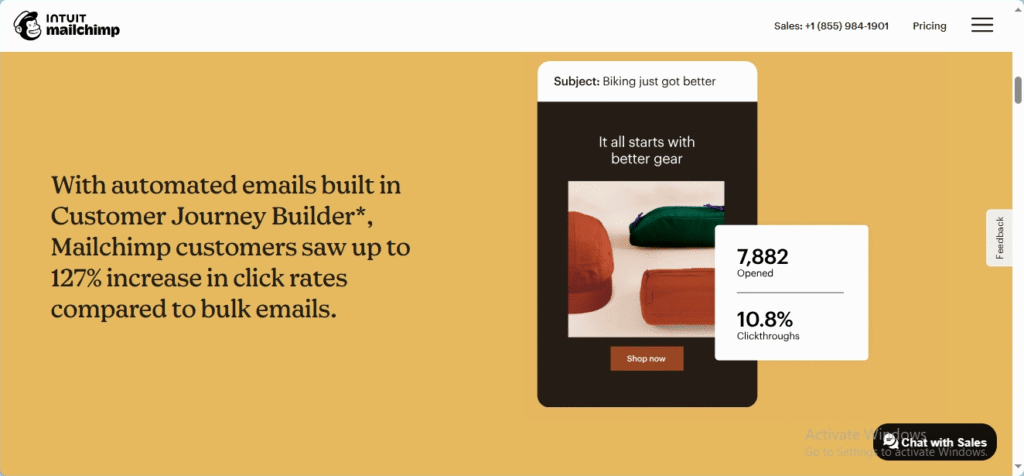
Constant Contact includes basic automation tools that are easy to set up but less advanced. You can send welcome emails, birthday or anniversary messages, and follow-ups after clicks or opens. However, it lacks the deep customization and branching workflows found in Mailchimp. While it’s sufficient for small businesses or users with simple automation needs, it might not be enough for advanced marketers.
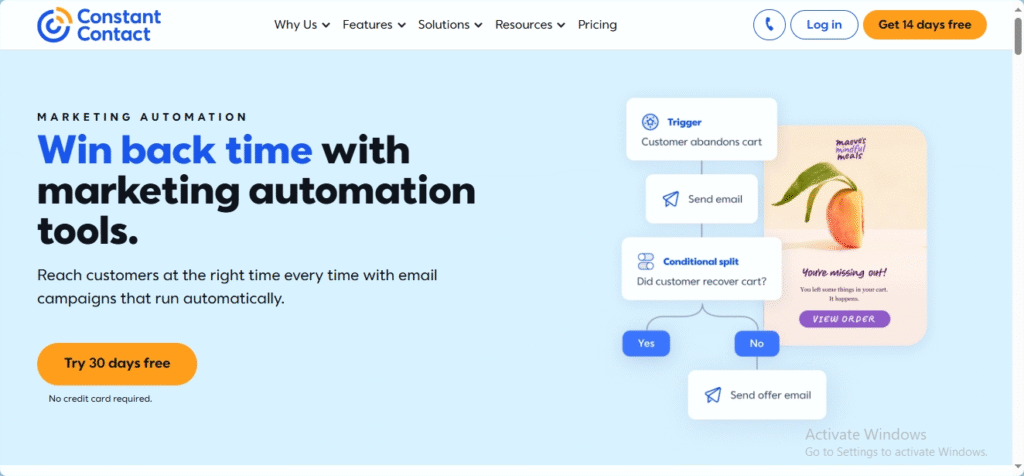
To sum it up: Mailchimp is the better option for businesses needing robust and flexible automation, while Constant Contact is a good fit for users who want simple, goal-based automations without the learning curve.
List Management & Segmentation
When comparing Mailchimp vs Constant Contact, list management and segmentation are key features to consider—especially if you’re aiming to send targeted, personalized emails.
Mailchimp offers powerful tools for managing contacts. You can organize subscribers using tags, segments, and groups. Segments can be created based on behavior (like past email opens or link clicks), purchase activity, or custom fields. Mailchimp also supports dynamic segments that update automatically based on your criteria. This makes it ideal for marketers who want precise control over their audience targeting.
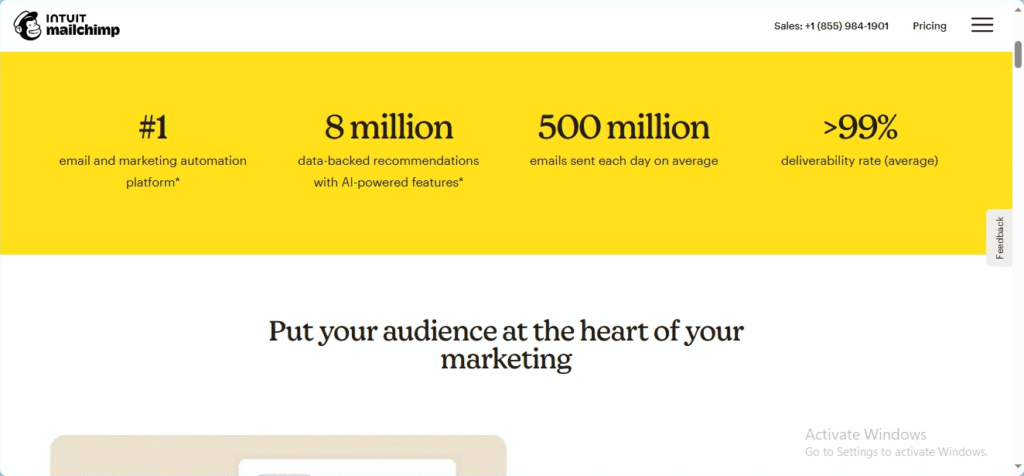
Constant Contact also provides tagging and basic segmentation features. You can segment contacts based on engagement, list activity, or custom fields. However, it lacks some of the advanced automation-based segmentation and dynamic updating found in Mailchimp. That said, its simple interface makes it easy for beginners to manage lists without confusion.
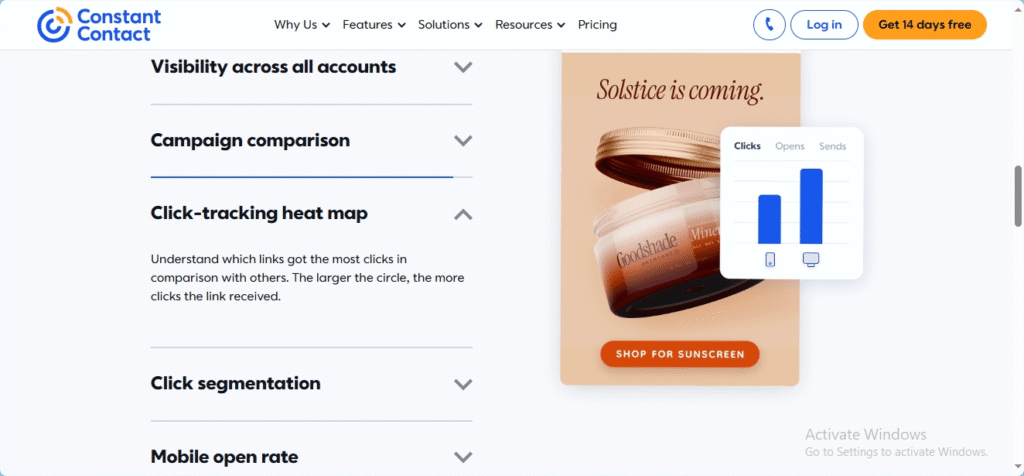
Overall, Mailchimp is better suited for users who need detailed segmentation and complex audience targeting, while Constant Contact is a solid choice for basic list management with a more user-friendly approach.
Integrations & Add-Ons
When comparing Mailchimp vs Constant Contact, integrations and add-ons play a crucial role in extending the functionality of your email marketing platform.
Mailchimp offers a massive library of integrations—over 300 apps and services. It connects easily with popular tools like Shopify, WooCommerce, WordPress, Stripe, Zapier, Canva, and many CRM platforms. These integrations allow users to sync customer data, automate campaigns based on sales activity, and enhance email design. Mailchimp also provides API access for custom integrations, which is great for businesses with unique needs.
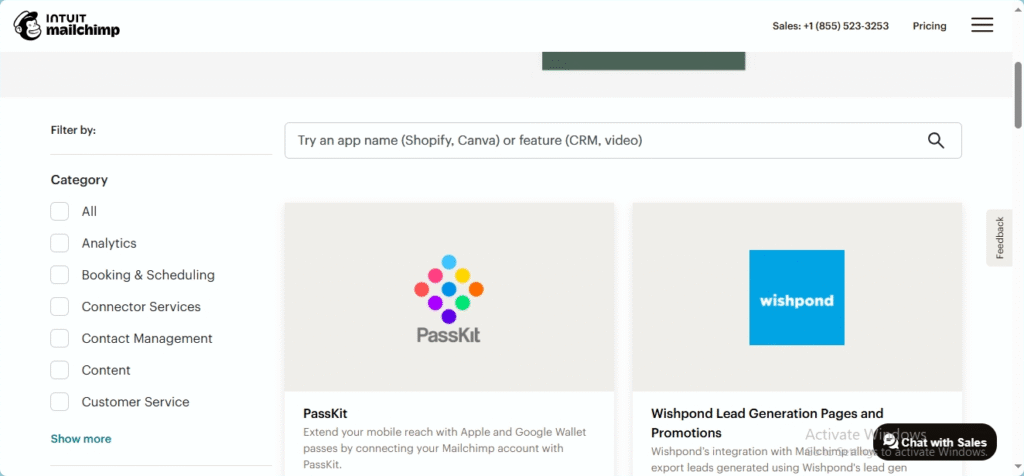
Constant Contact also supports a wide range of integrations, though its library isn’t as extensive as Mailchimp’s. It connects with platforms like Shopify, QuickBooks, Eventbrite, Facebook, and more. Constant Contact focuses more on ease of use with its integrations, offering simple plug-and-play functionality without technical setup. For most small businesses, the available tools are more than enough.
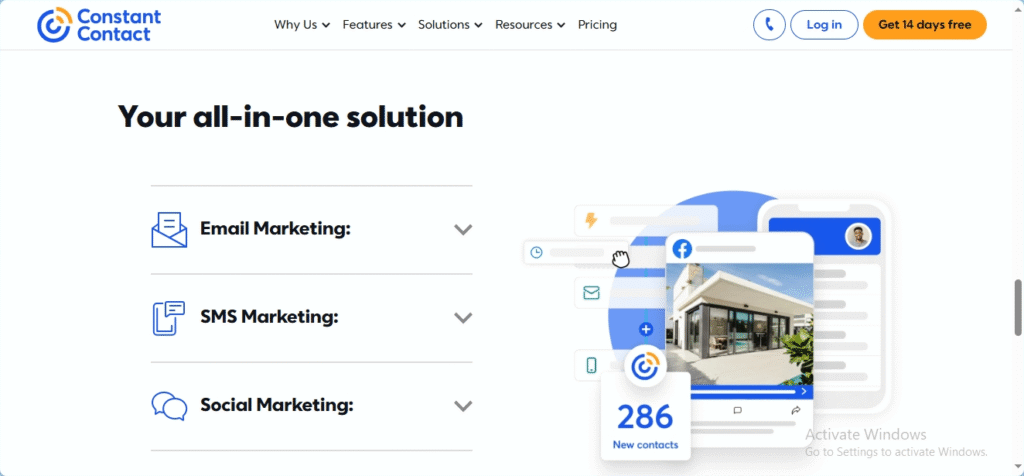
In summary, Mailchimp is the better option for businesses looking for advanced integration capabilities and custom flexibility, while Constant Contact is ideal for users who want simple, ready-to-use integrations without a steep learning curve.
Analytics & Reporting
A key area of comparison in Mailchimp vs Constant Contact is how each platform handles analytics and reporting. These insights are essential for understanding what’s working—and what needs improvement—in your email campaigns.
Mailchimp provides detailed and visually rich reports. You can track open rates, click-through rates, bounce rates, unsubscribe rates, and even revenue generated from email campaigns. Mailchimp also includes advanced features like A/B testing, click maps, and engagement over time. For eCommerce users, Mailchimp integrates sales data so you can measure how emails impact revenue directly.
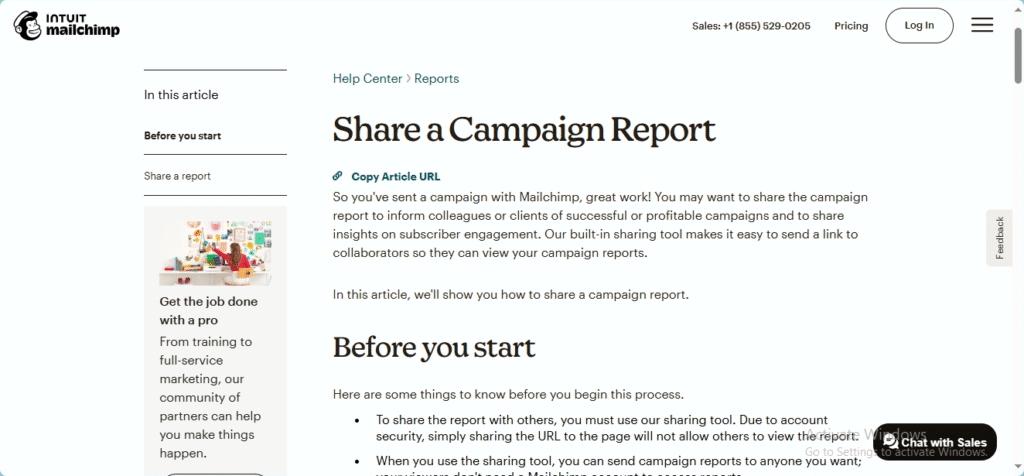
Constant Contact also offers essential reporting features such as opens, clicks, bounces, and unsubscribes. The interface is simple and easy to read, making it ideal for beginners. While it lacks some of Mailchimp’s more advanced analytics tools and visual reports, it does provide useful campaign comparison views and real-time tracking.

In short, Mailchimp is better suited for users who want in-depth, data-driven insights, while Constant Contact is ideal for those who need basic, easy-to-understand reports without overwhelming details.
Customer Support
In the Mailchimp vs Constant Contact comparison, customer support can be a deciding factor—especially if you’re new to email marketing or run into technical issues.
Mailchimp offers a variety of support options depending on your plan. Free users get access to the knowledge base and email support for the first 30 days. Paid plans include 24/7 email and chat support, but live phone support is not available. Mailchimp also maintains a large library of tutorials, guides, and webinars that help users troubleshoot or learn new features on their own.
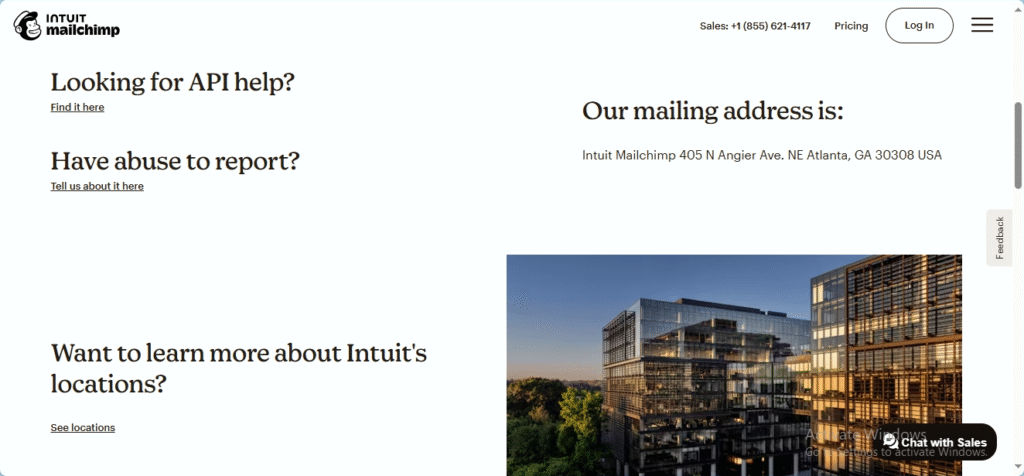
Constant Contact, on the other hand, is known for its strong customer service. All users—regardless of plan—get access to live chat, email, and phone support. This is especially helpful for small businesses that may prefer speaking directly with a support rep. Constant Contact also offers free onboarding sessions, community forums, and a large help center with step-by-step guides.
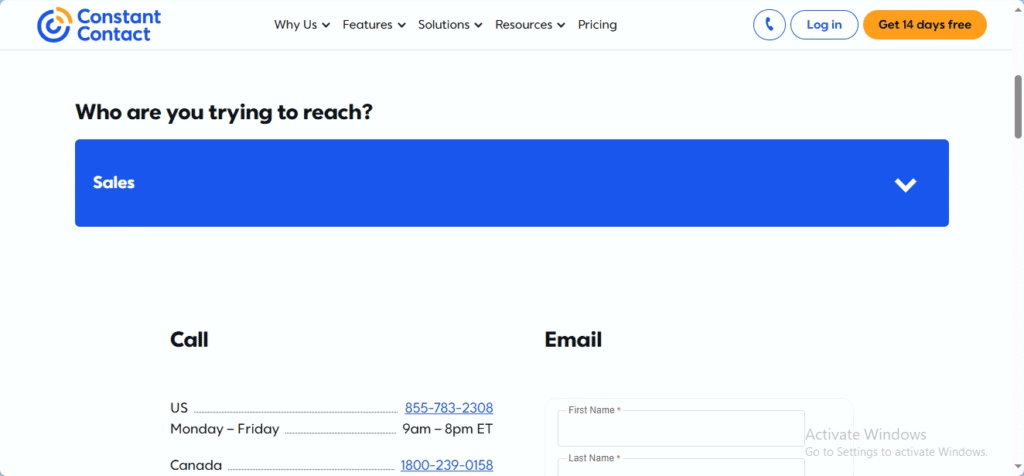
In summary, Mailchimp is a solid option for self-service learners and chat-based help, while Constant Contact stands out with its reliable, direct support, especially by phone.
Pricing & Free Plans
When looking at Mailchimp vs Constant Contact, pricing is one of the most important factors for individuals and small businesses deciding which platform offers the best value.
Mailchimp offers a free plan that includes up to 500 contacts, 1,000 monthly email sends, and basic features like email templates and one-step automations. Paid plans start at around $13/month and scale based on your contact list and features, including advanced automation, A/B testing, and custom branding. While Mailchimp’s pricing can increase quickly as your list grows, it’s flexible and offers various tiers to fit different business needs.
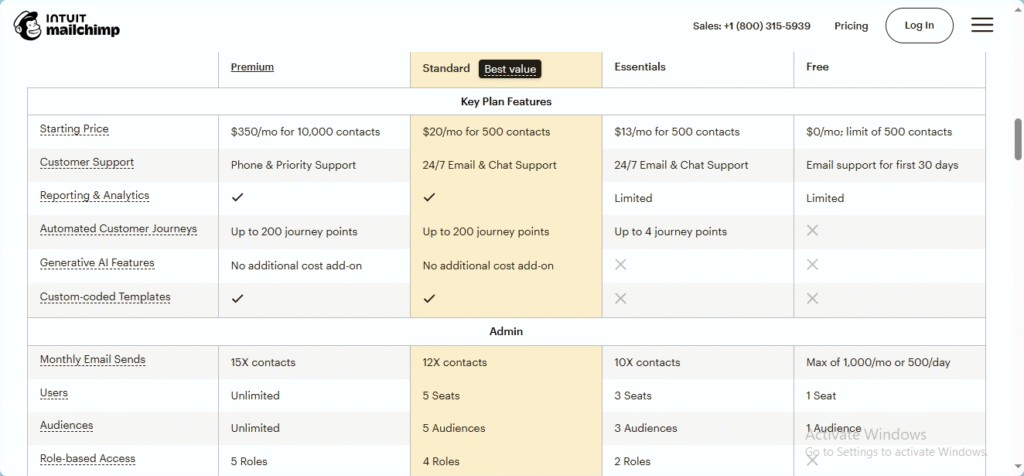
Constant Contact, in contrast, does not offer a free plan. Instead, it provides a 60-day free trial (in the U.S.) with access to most features. After that, plans start at around $12/month for up to 500 contacts. Pricing also increases with list size and added tools. The platform includes email templates, list segmentation, and live support in its base plans, but some features like advanced automation are only available on higher tiers.
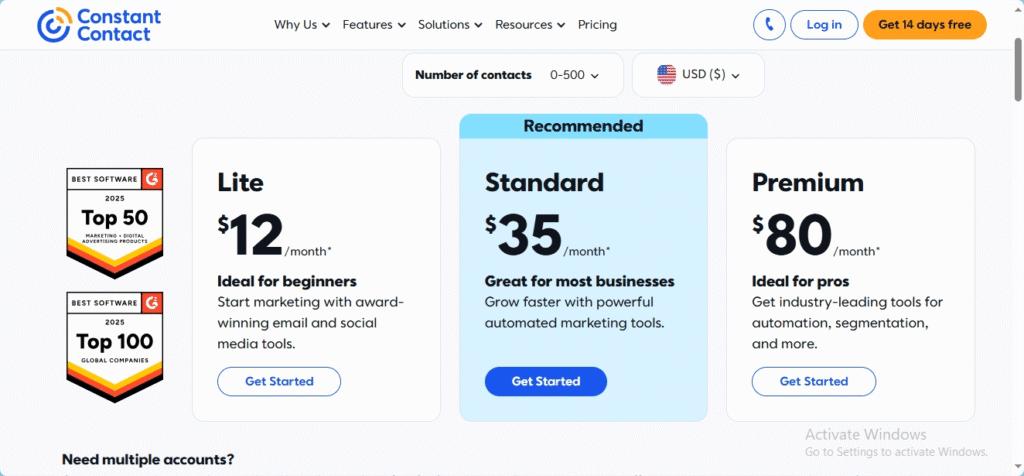
In summary, Mailchimp is ideal if you want a free plan to get started, while Constant Contact is a better choice for users who value full access during a trial and consistent support.
Pros and Cons Summaryo help you make a quick and informed decision, here’s a side-by-side look at the pros and cons of each platform in the Mailchimp vs Constant Contact comparison.
Mailchimp – Pros:
- Generous free plan (up to 500 contacts)
- Advanced automation and customer journey features
- Rich analytics and A/B testing options
- Large library of integrations and third-party apps
- Modern email templates and flexible editor
Mailchimp – Cons:
- Pricing increases quickly as your list grows
- No phone support, even on paid plans
- Slightly steeper learning curve for beginners
Constant Contact – Pros:
- Excellent customer support, including phone and live chat
- Very easy to use with a minimal learning curve
- Helpful onboarding and training resources
- Reliable deliverability and simple automation
- 60-day free trial (U.S. only)
Constant Contact – Cons:

- No permanent free plan
- Fewer integrations compared to Mailchimp
- Basic automation and segmentation tools
In summary, Mailchimp is best for businesses that need advanced features and flexible customization, while Constant Contact is ideal for those who want strong support and simplicity, even if it comes with fewer tools.

Conclusion & Recommendation
After a thorough look at Mailchimp vs Constant Contact, it’s clear that both platforms offer strong email marketing tools—but they cater to slightly different needs and user types.
Mailchimp is the better option if you’re looking for advanced features like custom automations, detailed analytics, and flexible design tools. It’s ideal for users who want more control over their campaigns, especially if they’re running an eCommerce business or managing large lists. The free plan is also a great way to get started without any upfront cost.
Constant Contact stands out for its ease of use and excellent customer support. It’s a solid choice for small businesses, nonprofits, or individuals who want a simple, reliable platform to send newsletters and promotional emails. The 60-day free trial provides a risk-free way to test the platform’s features before committing.
In the end, your choice depends on what matters most to you:
- Choose Mailchimp if you need powerful automation, deeper reporting, and room to grow.
- Choose Constant Contact if you value simplicity, hands-on support, and fast setup.
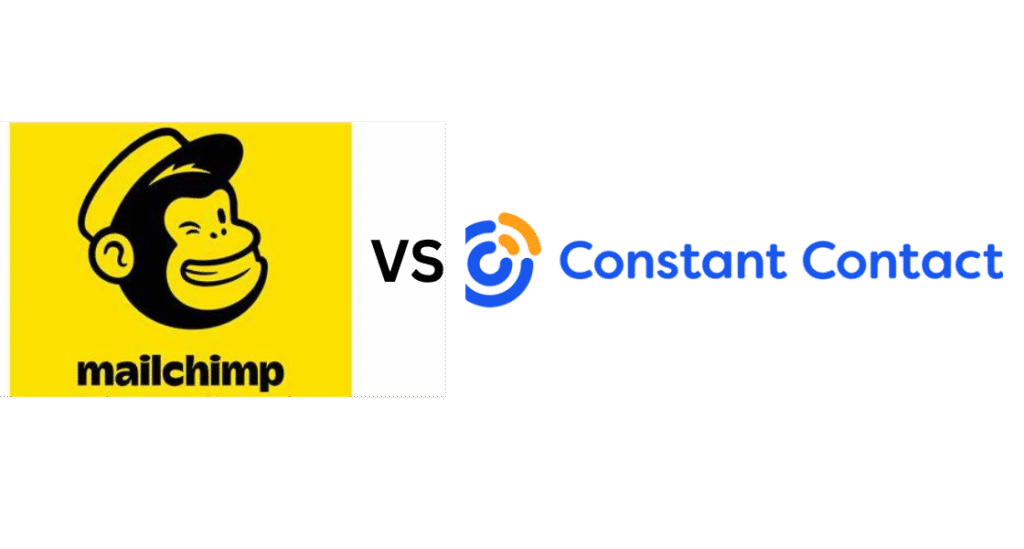
Conclusion
Choosing between Mailchimp vs Constant Contact comes down to your business goals, experience level, and the features you value most.
If you’re looking for a platform with advanced tools, powerful automation, and a flexible free plan, Mailchimp is a great fit—especially for growing businesses and experienced marketers.
If you prefer a simple, easy-to-learn platform with strong customer support and straightforward features, Constant Contact is a reliable and user-friendly choice.
Both tools are effective for email marketing, but the right one for you depends on how much control you want over your campaigns—and how much support you need along the way.
No matter which platform you choose, starting your email marketing journey today is the first step toward stronger customer relationships and more consistent business growth.
